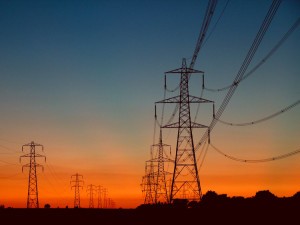The Energy Progress Report says impact of the COVID-19 pandemic has been a key factor in slowing progress toward universal energy access.

This is contained in a statement obtained from the World Bank on Friday, June 3, 2022, in Abuja.
The statement said that Tracking SDG 7: The Energy Progress Report, 2022 edition, revealed that the impacts of the pandemic affected the pace of progress toward the Sustainable Development Goal (SDG 7).
SGD 7 is aimed at ensuring access to affordable, reliable, sustainable and modern energy by 2030.
The statement said that the report was aimed at providing the international community with a global dashboard to register progress on energy access, energy efficiency, renewable energy and international cooperation to advance SDG 7.
According to the report, globally, 733 million people still have no access to electricity and 2.4 billion people still cook with fuels that harm their health and the environment.
“Advances have been impeded, particularly in the most vulnerable countries and those already lagging in energy access.
“Nearly 90 million people in Asia and Africa who had previously gained access to electricity, can no longer afford to pay for their basic energy needs.’’
It said the report revealed that the impacts of the COVID-19 crisis on energy had been compounded in the last few months by the Russian invasion of Ukraine.
The report said this had led to uncertainty in global oil and gas markets and had sent energy prices soaring.
“Africa remains the least electrified in the world with 568 million people without electricity access.
“Sub-Saharan Africa’s share of the global population without electricity jumped to 77 per cent in 2020, from 71 per cent in 2018, whereas most other regions saw declines in their share of the access deficits.
“While 70 million people globally gained access to clean cooking fuels and technologies, this progress was not enough to keep pace with population growth, particularly in Sub-Saharan Africa,” it said.
The report found that in spite of continued disruptions in economic activity and supply chains, renewable energy was the only energy source to grow through the pandemic.
However, it noted that these positive global and regional trends in renewable energy had left behind many countries most in need of electricity.
The report revealed that this was aggravated by a decrease in international financial flows for the second year in a row, falling by $10.9 billion in 2019.
It said SDG 7 targets also covered energy efficiency, which revealed that from 2010 to 2019, global annual improvements in energy intensity averaged around 1.9 per cent.
“This is well below the levels needed to meet SDG 7’s targets and to make up for lost ground, the average rate of improvement would have to jump to 3.2 per cent.’’
The statement said in September 2021, the United Nations High-Level Dialogue on Energy brought together governments and stakeholders to accelerate action to achieve a sustainable energy future that leaves no one behind.
“In this context, the SDG 7 custodian agencies, as they launch this report, are urging the international community and policymakers to safeguard gains toward SDG 7.
“The custodian agencies are also urging them to remain committed to continued action toward affordable, reliable, sustainable, and modern energy for all, and to maintain a strategic focus on countries needing the most support.’’
It said the custodian agencies include the International Energy Agency (IEA), the International Renewable Energy Agency (IRENA), the United Nations Statistics Division (UNSD), the World Bank, and the World Health Organisation (WHO).
The statement quoted the World Bank’s Infrastructure Vice President, Riccardo Puliti, as saying, “we believe SDG 7 is and remains an achievable goal.
“We urge governments and the global community to scale up efforts to integrate universal energy access into national energy transition plans.
“We urge governments and the global community to focus on the most remote, vulnerable and poorest unserved populations to ensure no one is left behind.”
The statement also quoted Francesco La Camera, the Director-General, International Renewable Energy Agency, as saying, “international public financing for renewable energy needs to accelerate, especially in the poorest, most vulnerable countries.
“We have failed to support those most in need. With only eight years left to achieve universal access to affordable and sustainable energy, we need radical actions to accelerate the increase of international public financial flows.
“We need to distribute them more equitably so that 733 million people who are currently left behind can enjoy the benefits of clean energy access.”
The Energy Progress Report is a product of close collaboration among the five SDG 7 custodian agencies.
The statement said this was the eighth edition of the report and this year’s edition was chaired by the World Bank.
By Okeoghene Akubuike
